Yves Moreau thought something was amiss when he came across a genetics paper about Tibetans in China. In the 2022 report in PLoS ONE, a team of researchers had collected blood samples from hundreds of people in the Tibet Autonomous Region of China and recorded genetic markers on their X chromosomes. The researchers concluded that this analysis was useful for forensic identification and paternity testing1.
The paper raised immediate red flags for Moreau. Over the past half-decade Moreau, who is a computational geneticist at the Catholic University of Leuven in Belgium, has become deeply concerned about the ethics of studies that report the collection of biometric data from vulnerable or oppressed groups of people2.
In this case, he worried that Chinese security forces might have been involved in the work. One concern was that the blood was collected by being blotted onto reference cards — a method of choice for police forces. Moreover, in 2022, the international advocacy organization Human Rights Watch, among others, had reported that a mass DNA-collection programme of Tibetan populations was under way. Moreau also recognized one co-author from other papers he had flagged: Atif Adnan, who had previously been based in China and was now affiliated with the Naif Arab University of Security Sciences in Riyadh. For Moreau, this raised questions about links to security forces. Moreau urged the journal editors to investigate whether the Tibetans in the study had given informed consent.
Forensic database challenged over ethics of DNA holdings
And by January 2023, three months after Moreau’s complaint, the publisher PLOS based in San Francisco, California, had retracted the article, with a notice saying that editors had concerns about informed consent and ethics approval procedures that were not resolved by documents they’d been sent.
But the alacrity of this retraction is unusual. Moreau and a few other researchers have alerted publishers to 96 papers over the past half-decade, and raised questions about genetic databases that hold data from minority ethnic groups. Ethical concerns are particularly acute in forensic science because the field has close connections with law enforcement, Moreau notes. So far, however, only 12 of the 96 flagged papers have been retracted. In most cases, decisions on whether to retract a paper are still pending — some more than three years after Moreau raised his concerns. He adds that he has found hundreds more articles that he has yet to challenge. Journal editors say that investigations can be lengthy because they are complex. But Moreau says that “the inordinate delays by many publishers in issuing decisions amount to editorial misconduct”.
Origins of a quest
Moreau first became alert to the ethics of widespread DNA profiling in 2016. That year, he learnt of a state-run programme in Kuwait that was set up by law to collect and catalogue genetic profiles from its citizens as well as visitors to the country. Moreau urged the European Society of Human Genetics (ESHG), a non-profit organization based in Vienna, to take a public stance against the move, which it did in September 2016. After media attention, the Kuwaiti parliament repealed the law a year later. The success of the campaign was intoxicating. “I felt like the lucky guy who goes to the casino and bets everything on seven and wins,” says Moreau. “Of course, I had to do more.”
The opportunity came quickly. In 2016, Moreau learnt that DNA profiling was being deployed as part of the passport registration process in China’s northwestern province of Xinjiang. The region is home to the mostly Muslim Uyghur minority ethnic group, which has been the target of surveillance and mass detentions condemned by the international community. (China’s government says that its operations in Xinjiang are aimed at quelling terrorist activities.) Moreau contacted the China arm of Human Rights Watch to offer his expertise. He also searched the academic literature and found dozens of papers describing the genetic profiling of Uyghurs and other minority ethnic groups in China. Other papers described research to distinguish people’s ethnicity from their faces: journalists have since reported that authorities in Xinjiang have used surveillance cameras with facial recognition software to identify Uyghur faces and that, in government contracts, Chinese firms that develop facial-recognition software and cameras say they offer the ability to recognize the faces of Uyghur or Tibetan people.
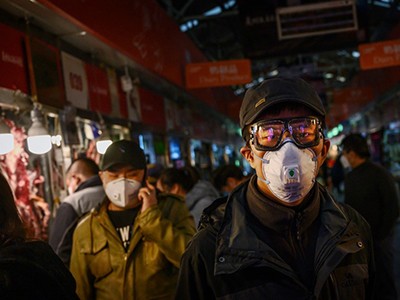
China’s massive effort to collect its people’s DNA concerns scientists
Moreau says that such papers should be retracted not only because it can’t be guaranteed that the people involved truly gave free informed consent — given the societal conditions at the time — but also because journals should deny researchers that are doing this work the credit of internationally published academic articles. When the collection of biometric data, including DNA and facial scans, is part of a system of oppression, scientific publishers should act so as not to be complicit in such systems, he says. Moreau notes that although journal papers and databases have also analysed data collected from other oppressed groups potentially without their consent (such as the Roma)3, he has concentrated mostly on flagging studies from China, in part because of China’s widely documented large-scale DNA-collection efforts, and because work on Uyghurs and other minority ethnic groups is heavily over-represented in Chinese forensic genetic papers.
When asked about concerns over the use of biometric data in China relating to minority ethnic groups, a Chinese government representative told Nature: “China is a country governed by law. The privacy of all Chinese citizens, regardless of their ethnic backgrounds, are protected by law.”
Informed consent
The idea that signed consent forms don’t always prove that someone has given voluntary, informed consent is borne out by reports coming out of Xinjiang. Abduweli Ayup, a Uyghur linguist who was detained and imprisoned in Xinjiang, attests to the circumstances that lead people to provide blood, saliva or urine samples under duress. Ayup, who has written a book about his experiences, related them to Nature.
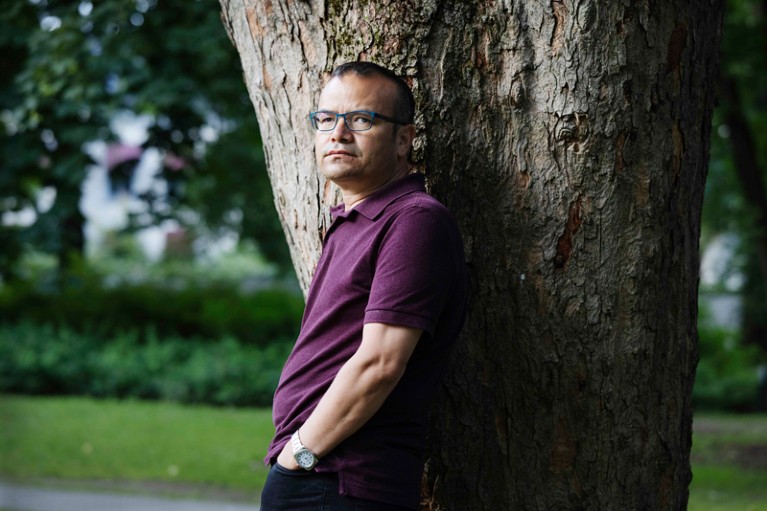
Abduweli Ayup, a Uyghur linguist who has written about his detention in Xinjiang, China.Credit: Andrea Gjestvang/The New York Times/Redux/eyevine
In August 2013, police arrested Ayup and took him to a detention centre in Kashgar, in western Xinjiang. Chinese authorities initially told him he was being detained for his involvement in a Uyghur separatist movement, but then they charged him with economic fraud; Ayup says none of the accusations are correct. During his 15-month detention, Ayup says, he was subjected to inhumane treatment by physicians and nurses at the centre. Prison officers often forced him to take unidentified tablets, he says, and then he and other detainees would be told to strip naked and line up so that nurses could administer a health survey and collect blood samples. “I felt like a mouse” being experimented on, says Ayup, who is now based in Norway but continues to worry about his brother and sister, who, as far as he knows, remain in detention.
Ayup says that no consent forms obtained in Xinjiang can be trusted, especially those gathered since around 2014, when the Chinese government began clamping down on Uyghurs and other minority ethnic groups in the region. “No one says, ‘no’,” says Ayup, even outside prison, because people are afraid of being arrested. During detention, Ayup signed consent letters to say that he was freely participating in the process of blood sample collection. But opting out was not an option. “How don’t we sign it?” he asks. “We are prisoners.”
Publisher actions
For the 12 papers retracted so far in relation to this issue, publishers say they’ve done so on the grounds that they haven’t been able to establish that participants gave informed consent. (Publishers have also closed seven cases deciding no action was warranted.) But around 70 papers are still under investigation 2 or more years since Moreau first flagged them. That includes 14 papers in the journal Molecular Genetics and Genomic Medicine; in 2021, nine members of the journal’s editorial board resigned in response to the journal’s failure to tackle the concerns raised by Moreau. Wiley, the journal’s publisher based in Hoboken, New Jersey, says that it is still investigating (see ‘Publisher actions on biometric studies’).
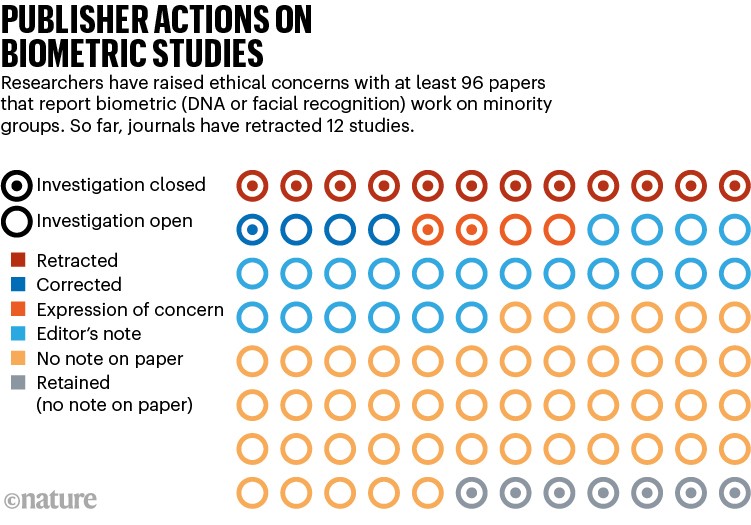
Source: Yves Moreau/Nature analysis
For Moreau, the involvement of law enforcement in a study is a clear sign that a journal should investigate. Of the 96 papers that Moreau or others have flagged to publishers, 60% have at least one co-author who works for a public-security bureau or other law-enforcement entity. Other papers enlist police officers in sample collection, which also calls into question whether consent was freely given, says Moreau.
Dennis McNevin, a forensic geneticist at the University of Technology Sydney in Australia, who co-authored another paper that Moreau has queried, says that in China, “it is not unusual for police to help facilitate forensic population-genetics research”. McNevin’s work, published in 2018 in Scientific Reports4, related to analysis of DNA from 1,842 people from 4 ethnic groups in Xinjiang. The paper included individual (anonymized) genotype data in its supplementary information. Following Moreau’s request in 2022, the London-headquartered publisher Springer Nature issued a correction that removed the genotype data. (Nature’s news team is editorially independent of its publisher Springer Nature.)
Moreau has other concerns about the paper. He filed a freedom-of-information request to the University of Canberra — where McNevin worked at the time of publication — to find out more about how the data were collected. McNevin probed further and was told in an e-mail from co-author Adnan (also a co-author of the retracted PLoS ONE article), a forensic geneticist then at China Medical University in Shenyang, that a police officer was present during sample collection and consenting procedures. Adnan also said that DNA donors would sometimes give a thumbprint, with a local guide — a physician or police officer — signing the consent form on their behalf.
However, in response to Nature’s enquiries, Adnan said that no participants in this study consented with a thumbprint, and no police officers were involved in the collection of samples. “I am sure that there wasn’t any involvement of any law-enforcement agency at any point during this or any research project,” he said. He adds that he doesn’t know why he told McNevin that a police offer was involved.
McNevin says he has no evidence that participants were coerced to take part, and that, as far as he knows, police were not involved in data analysis and do not have access to the data. (He also shared e-mails showing that the genotype data that the publisher later removed in its correction were first added as a supplementary file at the request of the journal’s editor, and were not included in the original submitted manuscript.) But Moreau says that “the simple presence of a police officer in a community where mass persecutions are ongoing is enough to void the validity of any consent”.
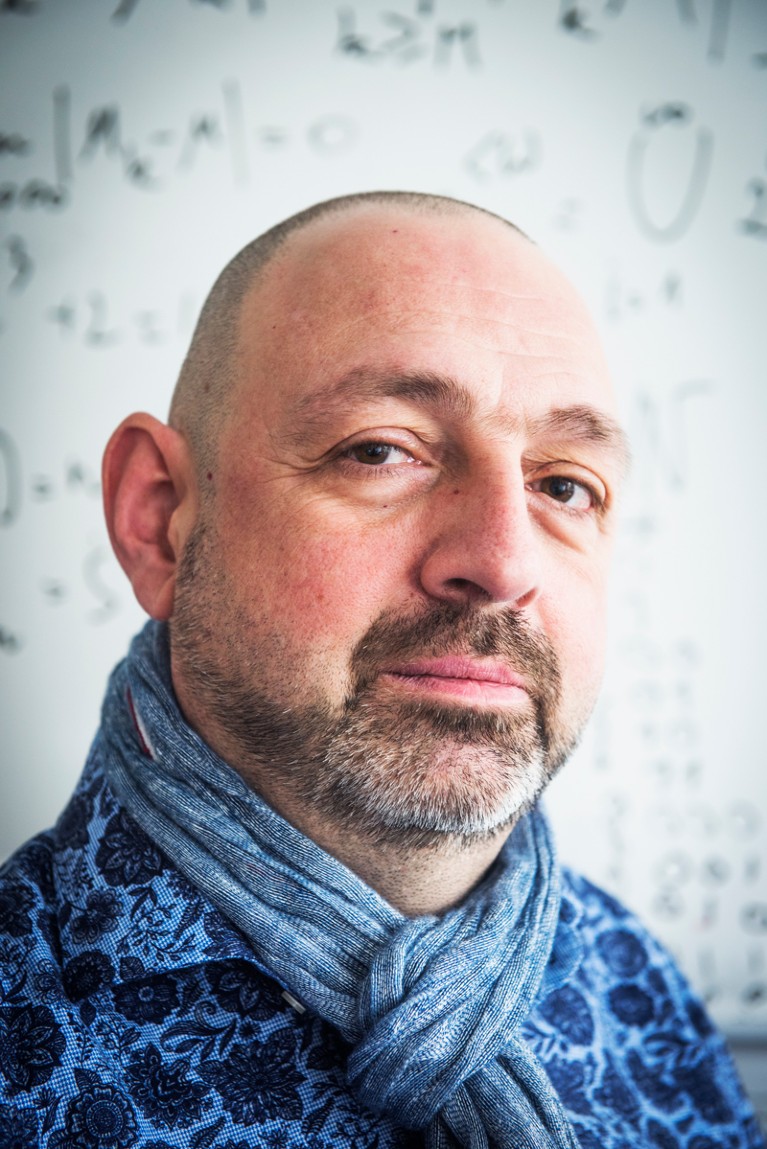
Yves Moreau is a bioethicist and geneticist.Credit: Lies Willaert
Moreau relayed his concerns about police involvement to Springer Nature in 2022 as well, but they were not followed up until Nature’s news team contacted the publisher for this article. Tim Kersjes, head of research integrity, resolutions at Springer Nature, says that the publisher will investigate the concerns further.
In some instances, publishers have closed their investigations. The journal Genes, for instance, decided that no action was needed for seven articles that it published. MDPI, the journal’s publisher in Basel, Switzerland, says that authors sent ethical-oversight documentation, and the studies’ institutional review boards confirmed their validity. In one article, the authors report investigating the genetic origins of the Hui people, a Muslim minority ethnic group mainly in northern China5. Several of the authors work for the Academy of Forensic Science in Shanghai, part of China’s Ministry of Justice. They collected blood samples and demographic information from 98 Hui individuals, and Moreau questions whether consent was freely given. In another paper, authors were affiliated with the Criminal Investigation Department of Yunnan province and the Public Security Bureau of Zibo City in China6. (The authors of these papers did not respond to enquiries for this article.)
Moreau disputed the decisions to retain the Genes papers with MDPI and the Committee on Publication Ethics (COPE), an industry body based in Eastleigh, UK, that guides publishers on best practice. But Iratxe Puebla, COPE’s facilitation and integrity officer, told Nature that COPE only reviews how a journal follows up on concerns, and not the scholarly content of the articles or specific editorial decisions.
Updating consent policies
In the wake of Moreau’s complaints, some publishers have updated their policies on informed consent, and their guidance to editors on considering work from potentially vulnerable groups, generally to be clear to authors that extra scrutiny might be required.
Springer Nature, for instance, updated its policies at the end of 2019; it now requires that editors take extra care with studies involving vulnerable groups because of the risk of coercion, and notes that authors must supply documentary evidence of consent when requested.
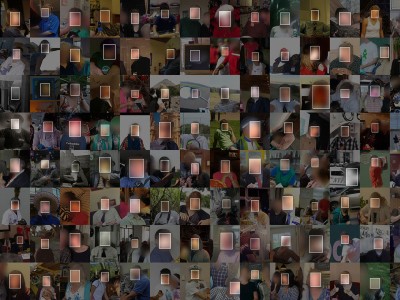
The ethical questions that haunt facial-recognition research
And although MDPI has not retracted or corrected any papers, it has also updated its processes. Since mid-2021, its policies have stated that editors will subject studies that involve vulnerable groups to extra scrutiny, and could request further documents from the ethics boards involved.
The Institute of Electrical and Electronics Engineers (IEEE) in New York City had no policies around informed consent until it updated them in September 2020 to require authors to confirm that they had participants’ consent and approval from an institutional review board.
But the publisher decided not to apply this policy retroactively to retract two articles flagged by Moreau that were published in 2010 and 20177,8. The former describes a database of facial images from three minority ethnic groups to develop an algorithm that can determine ethnicity; in the latter, the creation of a database of facial images from people of various ethnicities in Xinjiang. Instead, IEEE issued expressions of concern stating that the publisher didn’t have a policy of requiring informed consent at the time, and that it cannot now confirm whether participants gave informed consent. A third paper9, also flagged by Moreau and published in 2019, was retracted: not because of concerns over informed consent, but because the data underlying the study were not accessible. However, the retraction notice also says that IEEE was unable to confirm whether consent was obtained from a person whose image is shown in the paper. The authors of these papers did not respond to Nature’s inquiries.
Virginia Barbour, editor-in-chief of the Medical Journal of Australia, and a former chair of COPE, is critical of journals’ inconsistencies and lack of transparency when their articles are under investigation, especially when the investigations become protracted. After two or three years without resolution, she says, a paper should still be updated to alert readers of an ongoing investigation. Of the 74 articles still under investigation by publishers, 47 do not alert readers that an investigation is going on.
In some cases, publishers have made it clear that the receipt of informed consent forms is their key focus. One example is an investigation by Wiley into a study that trained algorithms to distinguish the faces of Uyghur people from those of Korean or Tibetan ethnicity10. In 2019, Wiley told Moreau and others that it had concluded from consent forms and university approval documents that the authors had gained consent from the students at Dalian Minzu University in China — whose faces were used in the research. “We are aware of the persecution of the Uyghur communities,” Wiley said. “However, this article is about a specific technology, and not an application of that technology.”
The issue was further complicated in 2021, when Curtin University in Perth, Australia, asked for the study to be retracted; one of the co-authors, Wanquan Liu, had an affiliation with Curtin, but the university said it was not aware of the work and had not given him ethical approval. Instead, Wiley removed the Curtin University affiliation in January 2022. Liu did not respond to Nature’s inquiries.
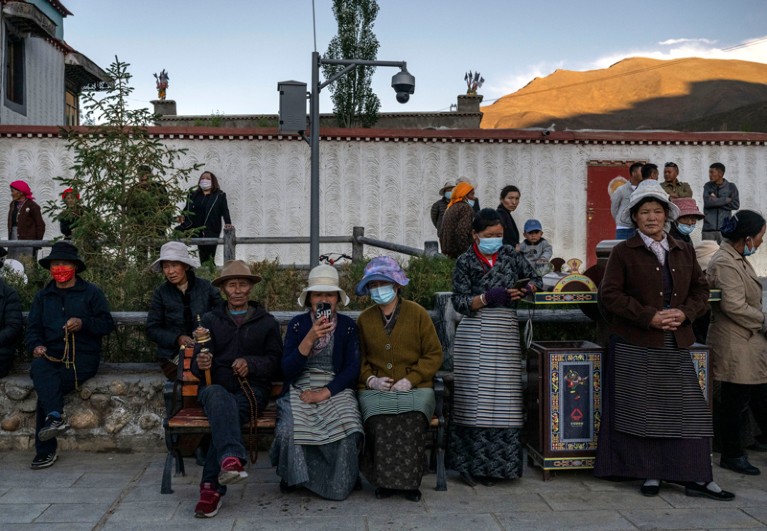
Tibetans under a security camera in Shannan, in the Tibet Autonomous Region of China.Credit: Kevin Frayer/Getty
Moreau says that he has since provided Wiley with further concerns, in the form of a master’s thesis that suggests that data in the paper were not collected as described in 2014, but were collected at least two years earlier, which calls into question the authors’ statements to Wiley about when consent was obtained. A spokesperson says that Wiley plans to make a decision on the article shortly.
Some editors are questioning the veracity of signed consent forms even when they are provided. In 2021, concerned by reports of human-rights abuses in China, David Curtis, a human genetics researcher at University College London, resigned as editor-in-chief of the journal Annals of Human Genetics, published by Wiley. Curtis says he felt he could no longer impartially consider submissions to the journal from researchers in China because of his concerns over whether informed-consent claims in such papers could be trusted.
Journals’ responsibilities
Henryk Szadziewski, an ethnographer and director of research at the Uyghur Human Rights Project (UHRP), a Washington-DC-based advocacy organization, says that journals need to further tighten their procedures.
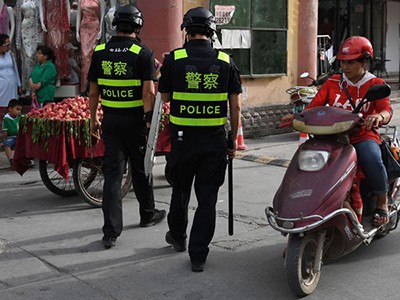
Science publishers review ethics of research on Chinese minority groups
Szadziewski was involved in alerting editors to problems with a BMC Public Health study published in April 202311. It was conducted on “Uyghur residents” in areas of Tumshuq, a city that is controlled by the Xinjiang Production and Construction Corps (XPCC), which was under sanction in the United States, the European Union, the United Kingdom and Canada for human-rights abuses against the resident Uyghur population at the time the article was submitted for publication in October 2022. Three of the article’s authors were affiliated with the Shihezi University School of Medicine in Xinjiang, which Szadziewski says is run by the XPCC; an ethics committee at the university approved the study.
After Szadziewski alerted the journal, the paper was swiftly retracted in August 2023, because the authors “had not obtained appropriate ethical approval” before recruiting people for the study, the retraction notice said.
Szadziewski suggests checking author affiliations for sanctioned organizations (although this would not have flagged XPCC’s name, which appears only in the paper’s methods section as a source of participants). Chris Graf, research integrity director at Springer Nature, which publishes BMC Public Health, says that the publisher already complies with sanctions requirements and didn’t breach them in this case, but adds that “we do not consider ethics to be a box-ticking exercise and we do not consider this the end of the matter”.
DNA databases
Some researchers say the concerns go beyond scientific publications. Data collected during DNA profiling studies is commonly deposited into genetic databases, which are resources for medical researchers, population geneticists and, in some cases, law-enforcement agencies. In 2021, Nature reported the concerns of geneticists about the contents of the Y-chromosome Haplotype Reference Database (YHRD), a public repository of genetic markers on Y-chromosomes from men across the world, which shows how these markers are related to male lineages in more than 1,400 populations. Police can use it, for instance, to quickly help calculate the likelihood that markers from crime-scene DNA match those of a male suspect.
Researchers have uploaded anonymous profiles from almost 350,000 males. The database holds samples from Uyghur, Roma and other oppressed minority populations that, Moreau and others have argued, could have been obtained without informed consent.
YHRD curator Sascha Willuweit, a forensic DNA specialist who works for the Berlin government, says that when a research paper is retracted, uploaded profiles originating from that paper are removed from the platform. And in 2022, he told Nature that in that year, the YHRD had retroactively requested information on the informed-consent and ethical-approvals processes for all data uploaded that weren’t related to a peer-reviewed paper.
In October 2023, the Charité research hospital in Berlin — which until the end of 2022 hosted the YHRD — informed Moreau by e-mail that data from one retracted study, of almost 38,000 genetic profiles of men from 70 populations in China12, had been removed from the YHRD. However, as only data collected as part of that study were removed, thousands of profiles that the study described, which had been obtained for previous papers, were still accessible. Twenty-three of those previous papers were published in the journal Forensic Science International: Genetics, and are still under investigation by its publisher Elsevier, based in Amsterdam.
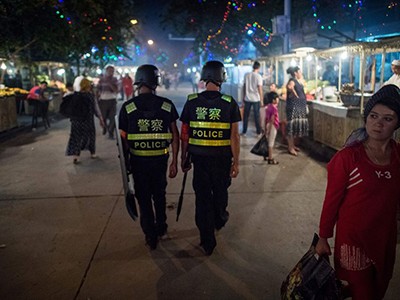
Crack down on genomic surveillance
Researchers agree that it’s important for the YHRD to represent all populations, to reduce bias when the database is used to analyse DNA collected at crime scenes. But they differ on whether — and on what basis — data from oppressed minority groups should be removed from the database. Maria De Ungria, a population geneticist at the Philippine Genome Center in Quezon City, says that a key question is whether Uyghurs or other communities want their DNA to be part of such a database. If not, “then of course, we have to respect that’s their choice. It’s their DNA,” she says. And Szadziewski says that the UHRP is preparing a statement that Uyghurs are not willing participants in DNA profiling studies. But Martin Zieger, a forensic geneticist at the University of Bern, says that in his view, a good and broadly applicable justification for removing data should be when a paper is retracted for lack of consent, rather than a community statement.
In 2022, the International Society for Forensic Genetics based in Mainz, Germany, established a Forensic Databases Advisory Board (FDAB) to make recommendations on best practice for the YHRD and other genetic databases used by the forensic science community. In February 2023, the FDAB released its first report, which suggested that database curators should undertake a case-by-case assessment of data sets, discarding those for which there is a high chance that no informed consent was obtained, unless the data were collected before the 1997 UNESCO Universal Declaration on the Human Genome and Human Rights.
Moreau takes the wider view that any broad indiscriminate collection of DNA by authorities is harmful, and thus so are any forensic databases built from such efforts. “They are part of that structure of social control that terrorizes a population,” he says. Noting China’s mass collection of DNA from men across the country, as well as in Xinjiang, he would like to see all data obtained in such a way removed from international databases, including data on people from the majority Han Chinese ethnic group.
More papers to come?
Moreau says that there are more worrying papers in the literature that he does not have time to chase down. In March 2021, he found 305 articles published between 2019 and 2021 on forensic genetic studies of Chinese populations in a Web of Science search. Half of the papers involved the police or a judicial authority, and 30% (92 studies) were on Tibetan or Muslim minority ethnic groups.
Moreau now estimates the number of Chinese forensic genetic studies — published before 2019 and since that search — could exceed 500, although it seems that the number of concerning papers has slowed in the past 3 years. And because of the entanglement of forensic population-genetics research and law enforcement in China, “all such studies should be retracted”, he argues.
Moreau says his campaign is also about researchers earning the trust of the broader community, especially that of vulnerable groups. Last November, he won an award for promoting quality in research, from the Einstein Foundation Berlin, for his work advocating ethical standards in the collection of human DNA data. “Once people understand that there are people in the [scientific] community that are willing to champion or to challenge the status quo, they actually will feel safer,” he says.


